Get Ready to Go on a Cultural Journey:
Join Our Newsletter and Discover Fascinating Destinations and Literary Adventures That Will Ignite Your Imagination!
Affiliate Disclosure: As an Amazon Associate, I earn from qualifying purchases. If you choose to purchase after clicking a link, I may receive a commission at no extra cost to you.
Haruki Murakami: Illuminating the Realm of Surreal Narratives
Haruki Murakami, the acclaimed Japanese author, has captivated readers around the globe with his mesmerizing and thought-provoking works. With a unique blend of surrealism, magic realism, and existential themes, Murakami takes us on a literary journey that transcends cultural boundaries. In this article, we will delve into the enigmatic world created by Murakami, exploring his writing style, the symbolism in his works, and the profound impact he has had on contemporary literature.
Who is Haruki Murakami?
Haruki Murakami is a world-renowned Japanese author and translator, known for his unique blend of surrealism, magical realism, and contemporary themes. Born on January 12, 1949, in Kyoto, Japan, Murakami’s works have earned him international acclaim and a dedicated fan base. With numerous bestsellers to his name, he is often hailed as one of the greatest living novelists.
The Early Life of Haruki Murakami
Murakami’s early life played a significant role in shaping his literary sensibilities. Growing up in Kobe, Japan, he developed a deep affinity for Western literature, music, and culture. His exposure to foreign works, ranging from the likes of F. Scott Fitzgerald to Franz Kafka, left a lasting impression on his writing style and themes. Murakami’s childhood experiences, coupled with his love for reading, laid the foundation for his future as a novelist.
Haruki Murakami’s Writing Style
Murakami’s writing style is characterized by its simplicity, yet it possesses a mesmerizing quality that draws readers into his narratives. His prose is often described as fluid, poetic, and evocative, creating a dreamlike atmosphere throughout his novels. Murakami’s ability to seamlessly blend the ordinary with the surreal is one of the hallmarks of his writing, allowing readers to navigate through his narratives with a sense of wonder and intrigue.
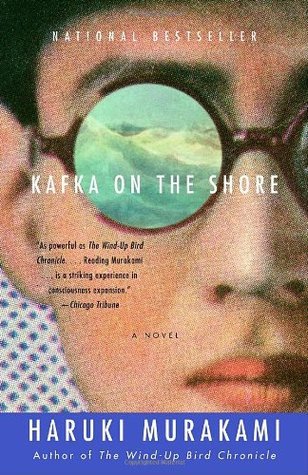
The Influence of Western Literature on Haruki Murakami
Western Literature as a Wellspring of Inspiration
Haruki Murakami draws inspiration from Western literature, particularly the works of authors such as Ernest Hemingway and Raymond Chandler. Their storytelling techniques, themes, and characters have deeply influenced his own writing style. By embracing elements of Western literature, Murakami creates a literary fusion that appeals to a global audience.
(Love Japanese books? Check out the most famous Japanese authors here!)
Transcending Cultural Boundaries
Haruki Murakami’s ability to bridge the gap between Eastern and Western storytelling traditions is a testament to his literary prowess. His novels resonate with readers from different cultures and backgrounds, showcasing the universal themes that underpin his narratives. Through his works, Murakami encourages us to explore the shared experiences that connect us all.
The Symbolism in Murakami’s Works
Cats, Wells, and Moons: Unraveling the Symbols
Symbolism plays a crucial role in Murakami’s narratives, infusing his works with layers of meaning and depth. Cats, wells, and moons are recurring symbols that appear throughout his novels. These symbols often represent larger concepts, such as the mysterious and unknowable aspects of life. Murakami invites readers to engage in a process of interpretation, unraveling the hidden messages within his stories.
(Love Japanese manga? Check out the ultimate guide to Action Shonen manga here!)
The Power of Symbolism
Haruki Murakami’s masterful use of symbolism adds a sense of wonder and intrigue to his works. It allows readers to explore the deeper realms of human emotions, desires, and existential questions. Symbolism acts as a bridge between the conscious and unconscious, inviting us to contemplate the enigmatic nature of our own lives.
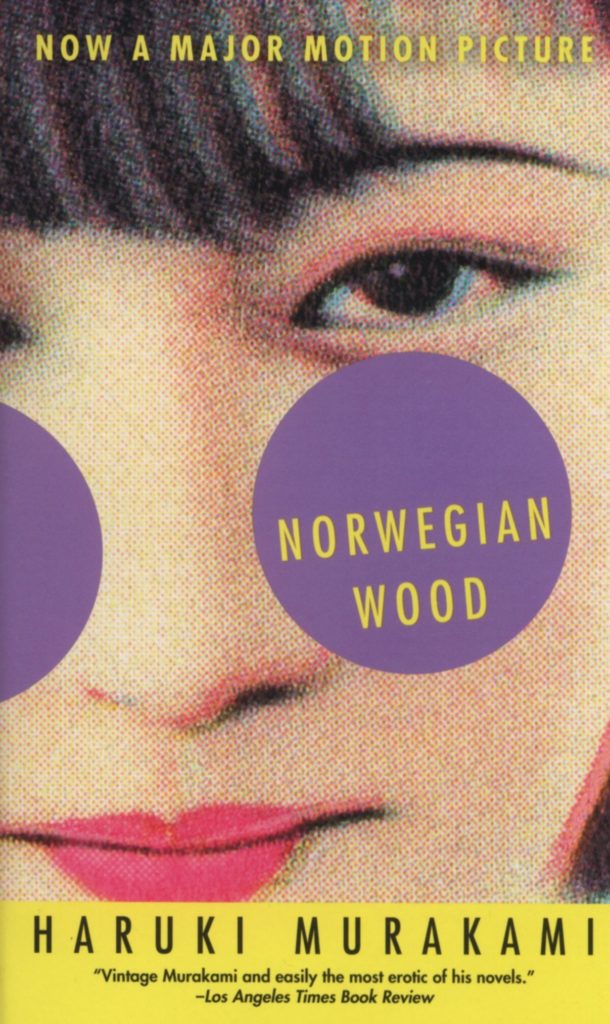
Murakami’s Connection to Jazz Music
Jazz as a Source of Inspiration
Jazz music holds a special place in Haruki Murakami’s heart and frequently finds its way into his novels. As an avid jazz aficionado, Murakami draws parallels between the improvisational nature of jazz and his own storytelling. The rhythm, spontaneity, and soulful expression of jazz resonate with the unpredictable and evocative nature of his narratives.
Jazz as a Narrative Element
Incorporating jazz into his works, Murakami creates a harmonious blend of music and literature. Jazz serves as a backdrop that enhances the atmosphere, adds depth to the characters, and mirrors the complexities of human emotions. Through his connection to jazz, Murakami offers readers a multi-sensory experience that transcends the written word.
The Magic Realism Element in Haruki Murakami’s Writing
Blurring the Boundaries of Reality and Fantasy
Magic realism is a literary technique often employed by Murakami, blurring the lines between reality and fantasy. In his narratives, ordinary events and objects take on surreal and magical qualities. This infusion of magical elements adds a sense of wonder and mystery to his stories, creating an otherworldly experience for readers.
Exploring the Unseen Realms
Haruki Murakami’s use of magic realism allows us to explore the hidden possibilities that lie within our everyday lives. By intertwining the mundane and the extraordinary, he invites us to question our perception of reality and embrace the enigmatic aspects of the human experience. In Murakami’s world, the boundaries of what is possible are expanded, offering a fresh lens through which to view our own lives.
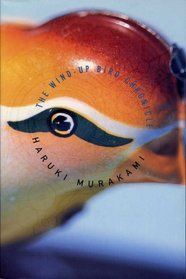
Haruki Murakami’s Exploration of Existential Themes
Probing the Nature of Identity and Existence
Haruki Murakami’s novels often delve into profound existential themes, inviting readers to contemplate the nature of identity, purpose, and the human condition. Through his characters’ introspection and self-discovery, he raises questions about the meaning of life and the search for personal fulfillment. Murakami’s exploration of existential themes encourages us to reflect on our own existence and find meaning in the complexities of the world.
The Quest for Connection and Belonging
A recurring motif in Haruki Murakami’s works is the longing for connection and a sense of belonging. His characters often embark on journeys of self-discovery, seeking to find their place in the world. Murakami’s exploration of these themes resonates with readers who have experienced their own quest for meaning and human connection.
Haruki Murakami’s Cultural Impact in Japan and Beyond
Inspiring a Literary Renaissance
Murakami’s influence extends beyond the literary realm, spurring a renewed interest in reading among the younger generation in Japan. His unique storytelling style and thought-provoking narratives have paved the way for new literary trends and experimental writing in the country. Murakami’s impact on Japanese literature cannot be overstated, solidifying his position as a cultural icon.
A Global Phenomenon
Haruki Murakami’s popularity has transcended national borders, captivating readers worldwide. His novels consistently appear on bestseller lists, and his works have been translated into numerous languages. Murakami’s ability to resonate with readers from diverse backgrounds has made him a global literary phenomenon, contributing to a greater appreciation and understanding of Japanese literature and culture.
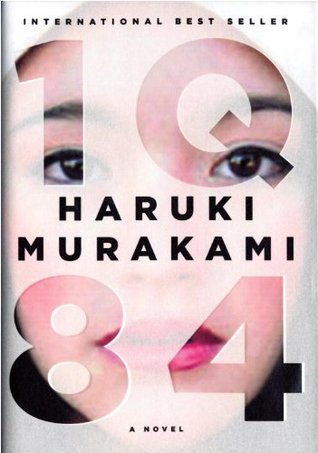
Haruki Murakami’s Criticism and Controversies
The Formulaic Critique
As with any prolific author, Haruki Murakami has faced criticism from some literary circles. Some critics argue that his storytelling formula can become predictable or repetitive. However, it is essential to acknowledge that even within his established framework, Murakami consistently brings new perspectives and nuances to his narratives, captivating readers with his unique blend of themes and imagery.
The Feminist Perspective
Another point of critique raised by some is the absence of a strong feminist perspective in Murakami’s works. While his female characters are often complex and compelling, some critics argue for a more robust exploration of gender dynamics. However, it is worth noting that Murakami’s narratives often transcend gender boundaries, delving into universal human experiences that resonate with readers regardless of their gender.
The Translation of Haruki Murakami’s Works
Translating the Essence
The translation of Haruki Murakami’s works presents a challenge due to the nuances of his writing style and cultural references. Renowned translators such as Jay Rubin and Philip Gabriel have successfully brought Murakami’s novels to the English-speaking world, capturing the essence of his prose while staying true to the cultural context of the original text. Their translations enable a wider audience to appreciate the beauty and depth of Murakami’s storytelling.
Preserving the Cultural Nuances
Translators of Murakami’s works face the task of preserving the cultural nuances that enrich his narratives. By carefully selecting words and phrases, translators strive to maintain the authenticity of Murakami’s writing, ensuring that readers can experience the same emotions and immerse themselves fully in his enigmatic world. The skill and dedication of translators are essential in bridging the linguistic and cultural gaps between the original text and its translated counterparts.
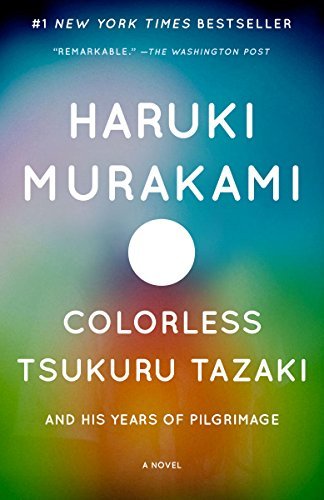
FAQs about Haruki Murakami
Q: What is the meaning behind the title “Unveiling the Enigmatic World of Haruki Murakami”?
A: The title “Unveiling the Enigmatic World of Haruki Murakami” encapsulates the aim of this article: to delve into the mysterious and captivating realm created by Murakami in his literary works. By exploring his writing style, themes, and cultural impact, we hope to shed light on the enigma that surrounds his narratives.
Q: Which Haruki Murakami novel should I start with if I’m new to his works?
A: A great novel to start with is “Norwegian Wood.” This coming-of-age story captures the essence of Murakami’s writing while being more accessible than some of his other works. It offers a glimpse into his unique storytelling style and introduces readers to the recurring themes that permeate his narratives.
Q: Does Haruki Murakami write in Japanese or English?
A: Murakami primarily writes in Japanese, his native language. However, his works have been translated into numerous languages, including English, allowing a global readership to experience the depth and beauty of his storytelling. Translators such as Jay Rubin and Philip Gabriel have played a crucial role in bringing Murakami’s works to the English-speaking world, capturing the essence of his prose while preserving the cultural nuances of the original text.
Q: Are there any movies based on Murakami’s novels?
A: Yes, several movies have been adapted from Murakami’s novels. One notable example is “Norwegian Wood,” directed by Tran Anh Hung and released in 2010. This film adaptation beautifully captures the melancholic and introspective atmosphere of the novel. Other adaptations include “Tony Takitani” and “Burning,” which draw inspiration from Murakami’s short stories.
Q: How has Haruki Murakami’s work been received by literary critics?
A: Haruki Murakami’s work has received a wide range of responses from literary critics. While he has garnered immense praise for his unique storytelling style, compelling characters, and exploration of existential themes, some critics have voiced concerns about the repetitive nature of his narratives or the absence of a strong feminist perspective in his works. However, the overwhelming consensus is that Murakami’s contributions to contemporary literature are significant and have left an indelible mark on the literary landscape.
Q: Is Haruki Murakami considered a postmodern writer?
A: Yes, Murakami is often regarded as a postmodern writer due to his blending of various literary styles, genres, and cultural influences. His works challenge traditional narrative structures, blur the boundaries between reality and fantasy, and engage in intertextuality by referencing and reimagining elements from Western literature. Haruki Murakami’s ability to navigate the complexities of contemporary existence aligns with the key tenets of postmodernism, making him a prominent figure within this literary movement.
Conclusion
In conclusion, Haruki Murakami’s enigmatic world continues to captivate readers with its blend of surrealism, existential themes, and profound insights into the human condition. Through his unique writing style, he invites us to explore the complexities of identity, the transient nature of emotions, and the mysteries that lie within our own subconscious. Murakami’s literary contributions have left an indelible mark on contemporary literature, inspiring and challenging readers to unravel the enigma of existence.
Happy reading!
A.J. McMahon
.
.
.
(P.S. Got any other books you want me to review? Then…)
Let’s Connect!
– GoodReads: A.J. McMahon
– Instagram: FlyIntoBooks
– Pinterest: FlyIntoBooks
– Facebook: FlyIntoBooks
– Twitter: @FlyIntoBooks
Affiliate Disclosure: As an Amazon Associate, I earn from qualifying purchases. If you choose to purchase after clicking a link, I may receive a commission at no extra cost to you.
Get Ready to Go on a Cultural Journey:
Join Our Newsletter and Discover Fascinating Destinations and Literary Adventures That Will Ignite Your Imagination!











